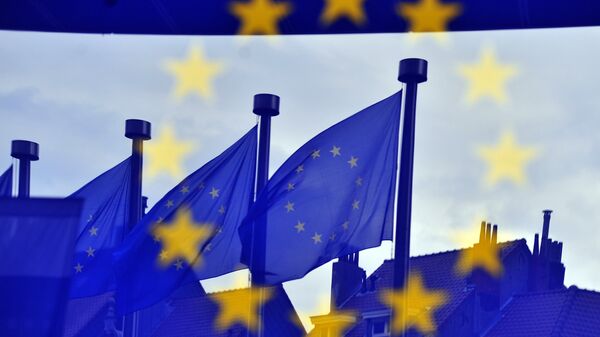Research from the US think tank Freedom House noted that a quarter of countries to have registered a decline in the state of democracy in 2016 were in Europe, with the Czech Republic, Denmark, France, Serbia and Spain among those mentioned.
Overall, 67 countries suffered net declines in political rights and civil liberties, marking the 11th consecutive year that reductions outnumbered improvements.
Troubling trends: Nearly one-quarter of the countries registering declines in 2016 were in Europe. #FreedomReport
— Freedom House (@FreedomHouseDC) January 31, 2017
"While in past years the declines in freedom were generally concentrated among autocracies and dictatorships that simply went from bad to worse, in 2016 it was established democracies — countries rated 'Free' in the report's ranking system — that dominated the list of countries suffering setbacks," the report said.
"In fact, 'Free' countries accounted for a larger share of the countries with declines than at any time in the past decade, and nearly one-quarter of the countries registering declines in 2016 were in Europe."
Turkey, Poland, Hungary
Turkey's crackdown on society following last year's failed coup, which has included the sacking or suspension of more than 100,000 civil servants, the arrest of tens of thousands of suspected coup plotters and the closure of several media outlets, saw the country register a freedom score of —15 for the past 12 months alone.
Another country highlighted in the report was Poland, with researchers saying the country's the right-wing Law and Justice (PiS) party had delivered "serious blows" to Poland's democratic institutions.
The @pisorgpl party of Poland should take heed from @POTUS Free press essential to democracy and stable country. #bebigger #democracy #EU
— Dino Moutsopoulos (@Dinoatwork) January 18, 2017
"The government passed legislation that has politicized public media, neutered the constitutional court, handed the security services sweeping powers of surveillance, and restricted the right of public protest. It has also proposed worrisome regulations on NGOs."
These measures were compared to those of Viktor Orban's Fidesz party in Hungary.
The radical right has a majority in Hungary & Poland. They've since undermined civil liberties & the rule of law https://t.co/utg8DLbZKs
— Stephen Wolf (@PoliticsWolf) May 23, 2016
"Both governments have repudiated liberal values, attacked the institutions of pluralism, and sought to use the economic power of the state for partisan political ends. While the PiS has focused on providing economic benefits to its core constituents, Fidesz has manipulated laws and state contracts to enrich an affiliated business elite that can buttress its future political dominance."
Europe Increasingly Divided
On a broader scale, recent events such as the migration crisis, the fight against Islamic terrorism and relations with Russia have led to increased division across the continent.
Today's must-read: @eucopresident on the future of EU says united we stand, divided we fall https://t.co/z4UPIXPEHb
— David O'Sullivan (@EUAmbUS) January 31, 2017
While concluding that the majority in Europe likely view Russia as "repressive and dangerous," the Freedom House report said "many have come to have doubts about certain core values that underpin the European idea."
"They are increasingly inclined to question the economic and social benefits of European integration and democratic solidarity in general,' the report said.
"In the wake of last year's developments, it is no longer possible to speak with confidence about the long-term durability of the EU."



